- Learning time
- 20 minutes
- First play time
- 60 minutes
Atlantis
Designed by: Leo Colovini
In Atlantis each player is racing to save themselves as the city of myth slowly sinks into the sea, grabbing whatever treasure they can on the way.
The ‘board’ is actually a series of tiles laid out in a line, some on their own and some two-tiles deep. Players place three pawns of their chosen colour at the start (Atlantis) and make their way along the trail of tiles to the other end (the mainland). How you move is dictated by cards – you start the game with a certain number and the symbols (and colours, for simplicity’s sake) match the colours on the tiles. When you play a card you simply move one of your pawns to the next available tile of the matching colour.
But hang on, it’s not quite as simple as that. Because wherever you land, you pick up the next available tile (i.e. unoccupied by any players) behind you. And the tile values, which are essentially victory points, vary from 1 to 7. So you want to be picking up a higher number. Additionally, if the tile you land on is already occupied – either by yourself or another player – you have to play another card to move on again. And finally if you cross any water caused by players removing tiles (water goes in any empty spaces) then you have to pay a cost – either your precious tiles or your equally precious (in terms of options during play) cards.
As the game progresses more and more water spaces open up and it gets more expensive to move. At the end of your turn you do at least pick up one card, and every pawn you get back to the mainland gets you an extra card as well. As soon as one player gets their third pawn to the mainland the game ends, and the other players have to pay to get their last pawns off the track too – but this time without picking up.
It’s a game of simple rules but as well as luck, there is also tactics – do you make a mad dash for safety, or risk moving slower and picking up more valuable tiles?
One final rule to remember – at the start of your turn you can trade in any of your tiles for half their number (rounded down) in cards. It’ll feel wasteful to sacrifice points like this, but the way the game is structured you’ll need to pick up cards more than once just to expand your options, as they are an absolute necessity.
The guru's verdict
-
Take That!
Take That!
Not much, although it's possible to make your moves with the other players in mind - deliberately taking lower points in order to create more water spaces behind you, for instance. But the main thing you'll feel up against is time.
-
Fidget Factor!
Fidget Factor!
It depends how everyone plays. Any game can grind to a halt if you have the player (or players) prone to over-thinking. But there is nothing here to really tax the brain excessively.
-
Brain Burn!
Brain Burn!
Fairly low. Although you may need a moment to work out your best move, cards tend to be scarce so in turn, so are your options.
-
Again Again!
Again Again!
Simple rules, quick play and randomness ensured by both the tiles set-up and the cards.

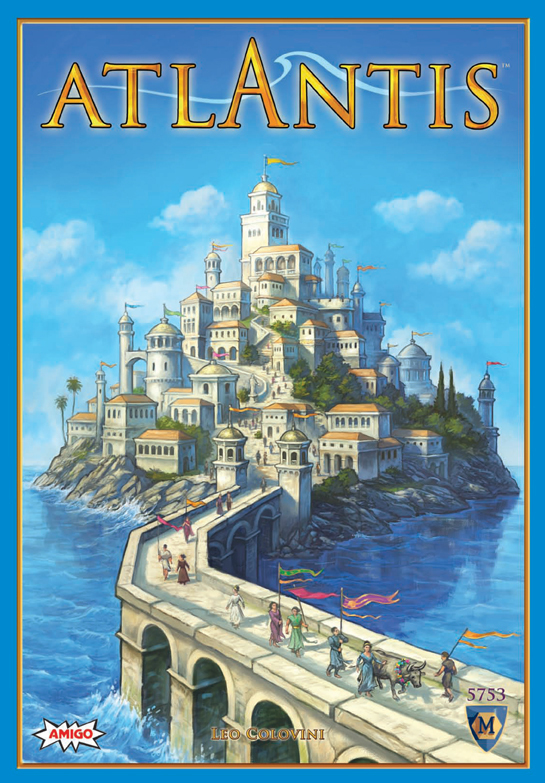
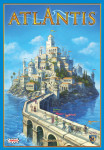
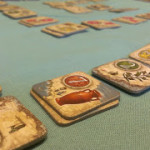
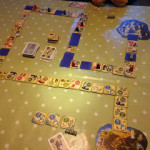


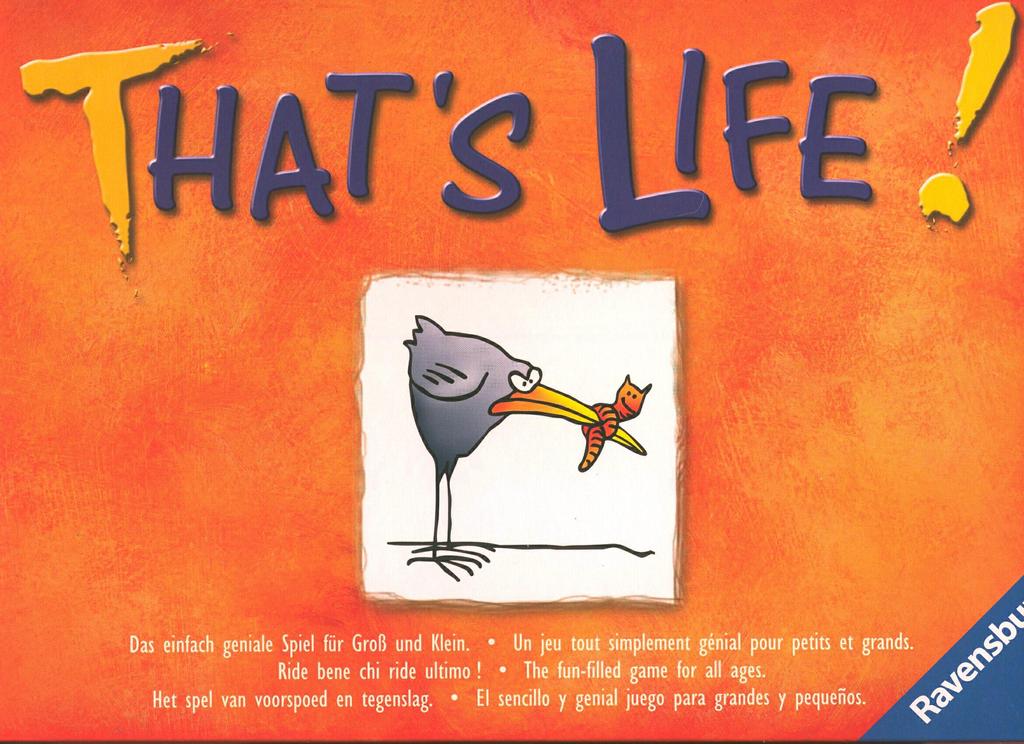
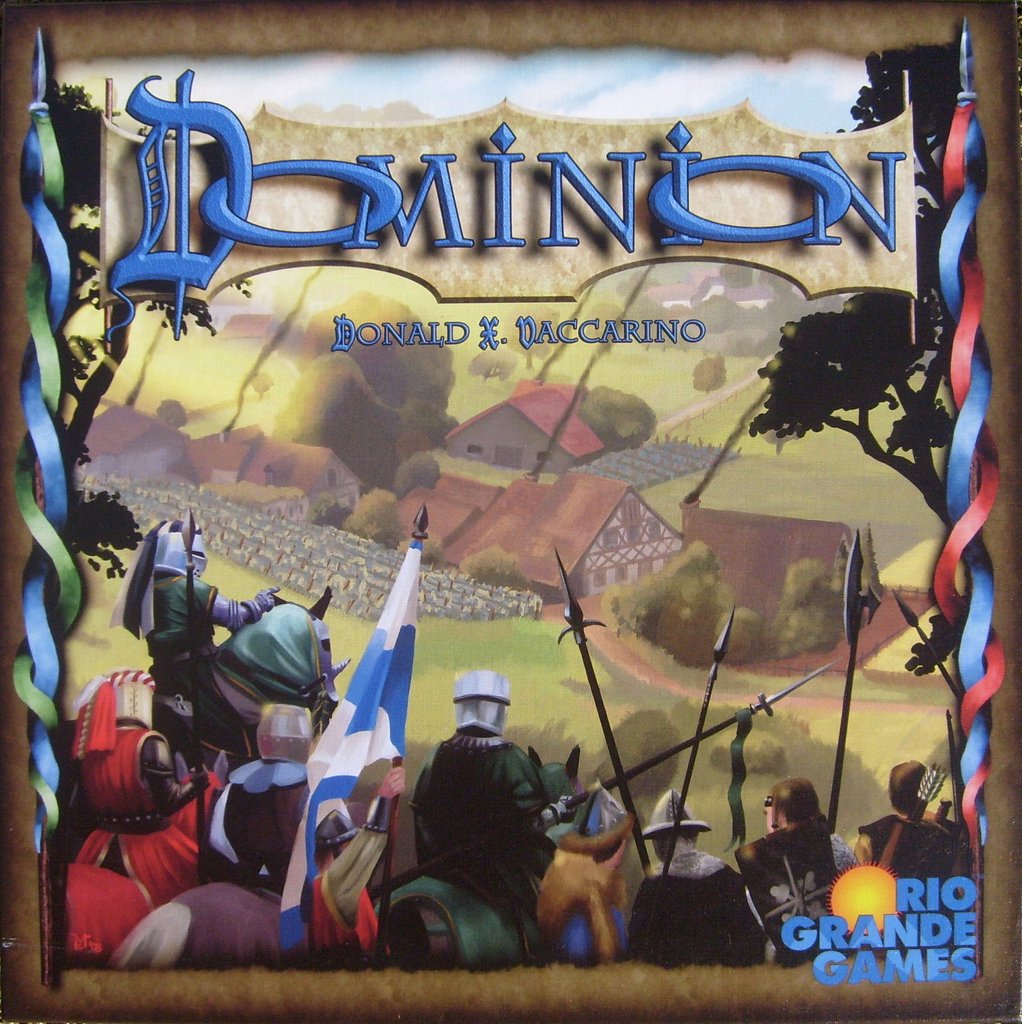
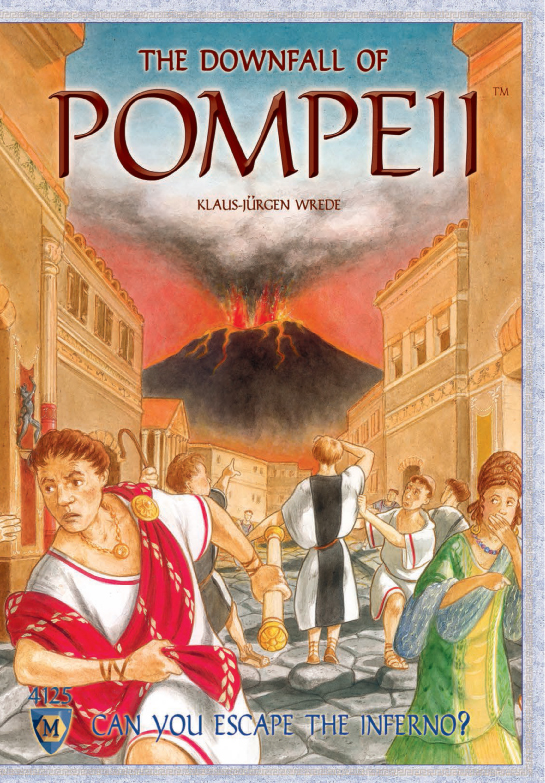
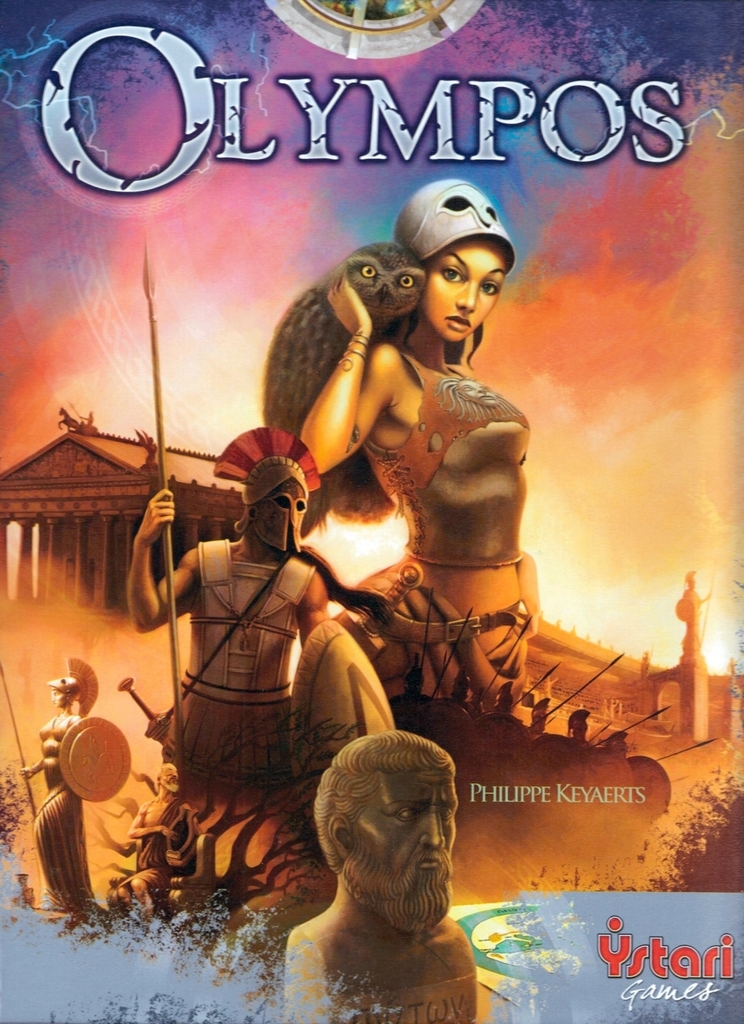
Sam says
I think Atlantis is a decent game. If I had a criticism, it's that it can feel a little long (which can be negated by using less tiles) and the advantage of getting a pawn to the mainland first means despite the intended variations in strategies, it can feel a bit like a race.